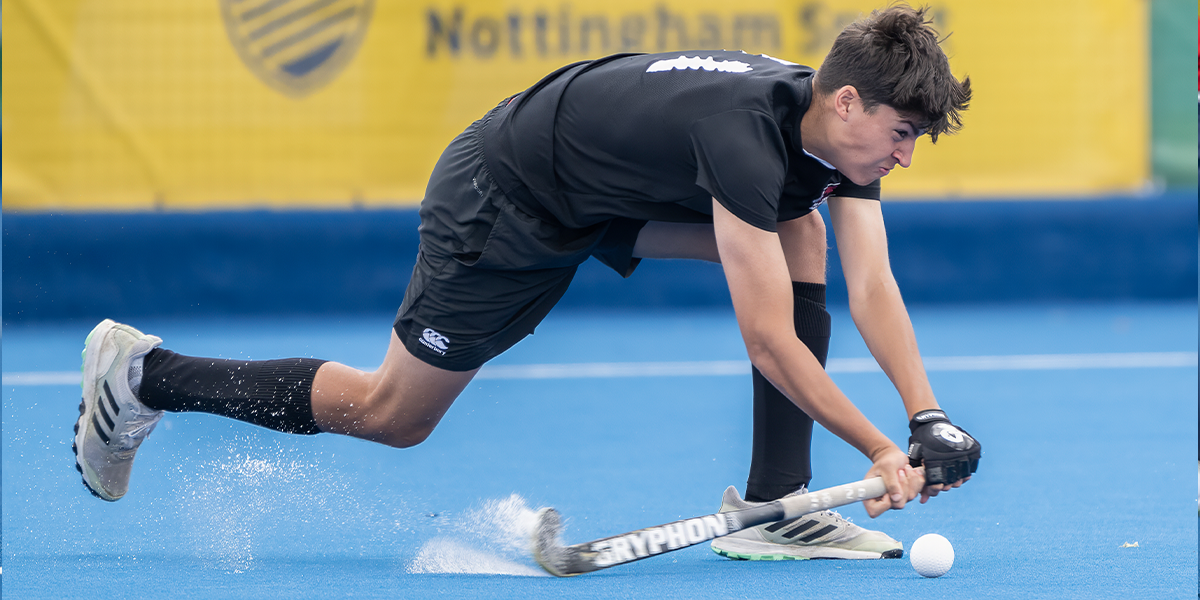Hockey is a fast, dynamic game that calls upon a variety of physical attributes to perform at the elite level. Placing emphasis too early on one capability can be to the detriment of the individual.
The physical capabilities outlined on the next page are for Senior International athletes and it is important that coaches in the talent system understand the physical development of young people.
Hockey being an early sampling and late specialisation sport means that many of our young players will be playing a multitude of sports before and during their development of hockey. This exposure to other sports may aid physical development. It is important that we take this physical development into account when looking at the player qualities, as these may help determine the superstrengths of a player. It is also possible that through different sports, a player has been exposed to organised physical training - for example, in athletics - which again specifically aids superstrengths of an individual. This should be considered when we are looking at talent development.
It is also important to recognise that the physical capabilities of a goalkeeper and a field player are slightly different. A goalkeeper does not need to have the same level of aerobic conditioning as a field player, although a strong base will help them consistently perform through tournaments. However, speed endurance is extremely important for a goalkeeper – high repeatability of intense effort.
Nutrition is a key factor of physical capability. Ensuring players are well hydrated and take on the key nutrients to fuel and recover appropriately, allows their body to physically perform. Ensuring we educate correctly is a key consideration, especially at the Talent Development stage.

‘Clean sport’ is a critical aspect of hockey. As a sport hockey has core values of trust, integrity, teamship openness. Drugs (whether they are prohibited or recreational substances) can all affect the body and performance. Great Britain Hockey believe that all players have the right to participate in hockey knowing that they, and their team mates and their opposition do so cleanly.
Great Britain Hockey proudly support Clean Sport. Elite players (both at club and International level) must follow strict guidelines. GB Hockey are bound by the World Anti-Doping Agency (WADA) to conduct a comprehensive programme, including educating and testing. Educating starts in the talent system and will continue into the Performance System.
For an aspiring player, it is important that they recognise they have full responsibility for any substance, supplement or medicine they use (or that is found in their system). They have complete strict liability.
-
Acceleration – the ability to rapidly increase running speed, from a walking or jogging start moving quickly into a high-speed action. This requires high levels of horizontal force production capability.
Maximum Velocity – the point at which a player has reached top end speed. This requires high levels of reactive or elastic strength.
Change of direction – the ability to decelerate, change direction and reaccelerate rapidly. This requires high levels of force absorption capability or eccentric strength.
-
Aerobic Endurance – the ability to continually perform an activity without tiring. During longer low intensity efforts aerobic respiration requires oxygen as the main source of energy. The heart pumps faster and breathing rate increases to increase oxygen levels to muscles. It is important for both field players and goalkeepers as rates between higher intensity efforts are improved with aerobic capability.
Repeated Sprint Ability – the ability to repeat high speed with short amount of rest. During rapid high intensity efforts anaerobic respiration is used. When the body requires immediate energy, it relies on stored energy sources rather than oxygen to fuel itself. This is important for outfield players due to the regular requirement for repeated high intensity sprinting actions, such as rapid change of direction. For goalkeepers, Repeated power ability is essential to the wide variety of movement skills they are required to express.
-
Physical dominance – the ability to express strength in hockey specific situations i.e. hitting a ball, evading an opponent, protecting the ball during a carry etc. Required for both field players and goal keepers.
Robustness – the body’s ability to withstand the physical demands of hockey training and game play. Stronger athletes are more resilient to injury and therefore able to train more regularly making themselves consistently more available.
Balance – the ability to stay in control of body movement. In hockey dynamic balance is required – which is the ability to maintain a center of gravity over a constantly changing base of support. Important for both field players and goal keepers.
Explosivity – the ability to produce large amounts of force in a small amount of time. Combines strength training with speed to increase power output. Extremely important for goal keepers. Is also required for field players.
-
Combination of food and drink intake to maximise performance.
Timing, quantity and quality of both food and drink is vital in becoming the optimum player.
Rest/Active Recovery – whilst not a physical capability in its own right, it is still a very important element of being an International Hockey Player. The player is able independently to make good choices with respect to sleep and rest. Being able to listen to their body and understand the different types of soreness whether its muscle or joint and knowing whether it means they should continue to work through it or to seek rest are lessons every player will require and learn through experience.




